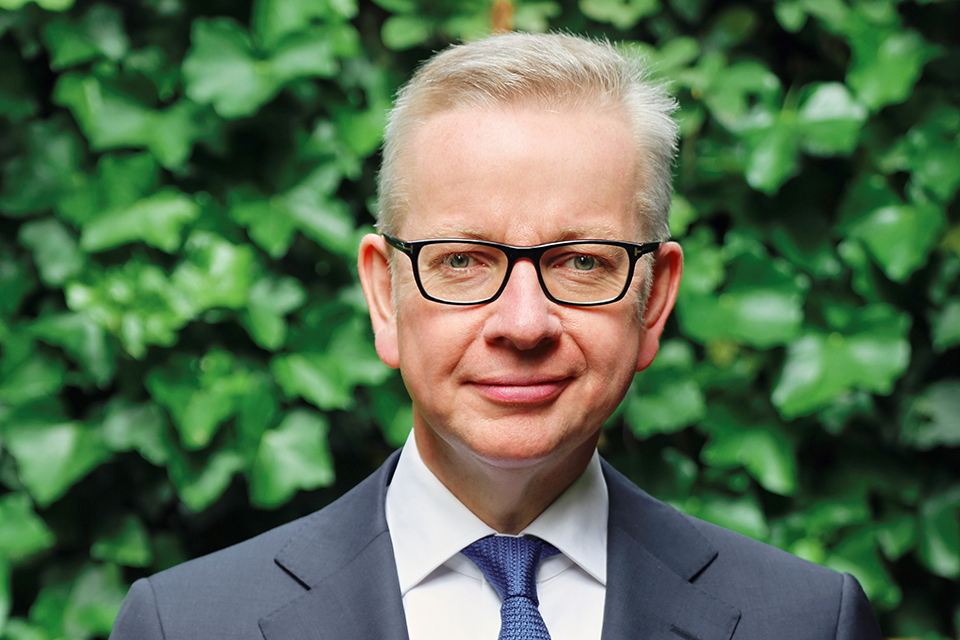Chancellor of the Duchy of Lancaster statement on coronavirus (COVID-19): 27 March 2020
Chancellor of the Duchy of Lancaster Michael Gove made a statement on coronavirus.

Welcome everybody to the government’s daily briefing.
I am joined today by the Chief Executive Officer of the NHS, Simon Stevens, and the Deputy Chief Medical Officer, Jenny Harries.
I would like to update you all on the facts on the spread of COVID-19 and the steps we are taking in the battle against the coronavirus.
113,777 people have now been tested for the virus. Of those, 14,543 have tested positive. An increase in the last day of 2,885.
The best scientific analysis now is that the rate of infection has been doubling every 3-4 days.
And of those who have contracted the virus, 759 have, sadly, died. Our thoughts and prayers are with the families of those who have passed away.
These figures are a powerful reminder of the need for all of us to act.
We need to slow the spread of the virus and strengthen the NHS’s ability to protect us all.
Strict social distancing measures have been put in place to restrict the spread of COVID-19 so fewer people should need hospital treatment at any one time.
The measures we have put in place follow scientific and medical advice and are designed to reduce the rate of infection.
And as well as acting to slow the spread of the virus, we are also acting to strengthen the NHS.
We are expanding the number of beds available for new patients, we are increasing the number of staff in our hospitals and we are also investing in life-saving equipment for those with severe symptoms to give people the care they need when they need it most.
I would like to thank all those involved in this effort to reinforce the frontline in the battle against the virus:
The military personnel who are helping to fit out a new hospital in east London and who are helping to distribute personal protective equipment. The amazing doctors, nurses and support staff in our NHS. Those in manufacturing who have risen to the challenge of producing new ventilators and the hundreds of thousands who have volunteered to help in innumerable ways.
This is a united national effort and the spirit of selflessness shown by so many is truly inspiring.
And this virus, of course, affects us all.
As you are no doubt already aware, the Prime Minister has coronavirus and is self-isolating at home in Downing Street.
He began experiencing mild symptoms yesterday afternoon and was tested on the advice of England’s Chief Medical Officer, Professor Chris Whitty.
The Prime Minister is continuing to lead the government’s response to coronavirus – chairing meetings and communicating with key members of his team through video conferencing.
And earlier today the Prime Minister led the effort in launching our latest front in the fight against COVID-19.
Today I can announce that the Prime Minister has brought together businesses, research institutes and universities in a new alliance to boost testing capacity for frontline workers.
Increasing our testing capacity is absolutely crucial in our response to and our fight against coronavirus. This is a particular priority for those who work in the health and social care sector and are working so hard to keep us all safe.
This will be antigen testing - testing whether people currently have the disease - so that our health and social care workers can have security in the knowledge that they are safe to return to work if their test is negative.
These tests will be trialled for people on the front line starting immediately - with hundreds to take place by the end of the weekend, dramatically scaling up next week.
And of course protecting our frontline workers is at the forefront of everyone’s minds at the moment.
Last night, millions of people paid a fantastic tribute to the heroes and heroines of the NHS when they stepped outside their front doors and clapped our carers.
And alongside those in health and social care, I also want to thank those who work in food production and retail, those who work for the Royal Mail and public transport, our teachers and our social workers. They all deserve our gratitude.
Having talked to trade union and business leaders, civil servants and public spirited volunteers and of course ministers in the devolved administrations in Scotland, Wales and Northern Ireland in recent days, I want to record my admiration for the national solidarity being shown in the fight against this disease.
All of us can support our NHS by continuing to follow the guidance to:
To stay at home.
To protect our NHS.
And to save lives.
I’ll now turn to the Chief Executive Officer of the NHS, Simon Stevens.